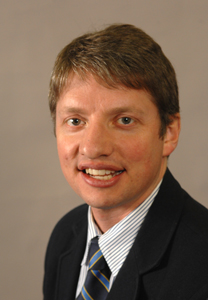SPH Researcher Studies Impact of Changing Health Behaviors on Aging with $1.2 Million NIH Grant
Study will examine health behaviors of the elderly in the U.S. and Japan
Contact(s): Catherine Herman (518) 956-8150
 |
|
Associate Professor Benjamin Shaw, University at Albany School of Public Health. (Photo Mark Schmidt) |
The project, entitled "Health Behaviors and Lifestyles in Old Age in the United States and Japan," will provide new insights into how individuals' health behaviors -- such as alcohol consumption, smoking, physical activity, and weight management -- change in late life. The research also seeks to compare and contrast the prevalence, determinants, and health impacts of various late life health behavior changes in the U.S. and Japan. Data for the project was collected through four federally-funded nationwide panel surveys conducted in the U.S., including the Health and Retirement Study and the Americans' Changing Lives Study, as well as one nationwide panel survey of the elderly in Japan.
"The findings from this research will deepen our understanding of the effects of behavior on health during old age," said Shaw, also a research associate at UAlbany's Center for Social and Demographic Analysis. "The study should help to guide the development of intervention strategies that promote healthy aging and offset the impending illness burden associated with the aging of the population."
"Dr. Shaw's research will provide valuable insight into how lifestyle behaviors among aging populations affect health outcomes," said School of Public Health Dean Philip C. Nasca. "As the world's population ages, the findings of this study will be of importance to health policy makers and health providers who are working to keep people healthy as long as possible."
"This important work will provide future researchers with a strong foundation for understanding age and aging," said UAlbany Vice President for Research Lynne Videka. "Whether the findings surprise us or confirm theories, they will be valuable for families, care givers, and the aging population itself."
Through its partnership with the New York State Department of Health, UAlbany's SPH offers students immediate access to internships at the Health Department, Albany Medical College, and a variety of other public and private health institutions throughout New York. The school serves as the academic anchor of the East Campus, the biotech hub of the university's life sciences research, which includes the Cancer Research Center, home to the Gen*NY*Sis Center for Excellence in Cancer Genomics and the Center for Functional Genomics.
Students and faculty at UAlbany's globally-oriented School of Public Health study the most profound health issues facing us today: the origins of disease such as cancer, the threat of bioterrorism, the spread of HIV/AIDS, and other emerging diseases, the lack of affordable and accessible health care for individuals and families, environmental hazards, substance abuse and social violence, maternal mortality in developing countries, the promises and threats of genetic engineering, and protecting food and water supplies.
![]() For more news, subscribe to UAlbany's RSS headline feeds
For more news, subscribe to UAlbany's RSS headline feeds
Educationally and culturally, the University at Albany-SUNY puts "The World Within Reach" for its 18,000 students. An internationally recognized research university with 56 undergraduate majors and 128 graduate degree programs, UAlbany is a leader among all New York State colleges and universities in such diverse fields as public policy, nanotechnology and criminal justice. With a curriculum enhanced by 300 study-abroad opportunities, UAlbany launches great careers. For more information about this globally ranked University, visit www.albany.edu. For UAlbany's extensive roster of faculty experts, visit www.albany.edu/news/experts.shtml.




